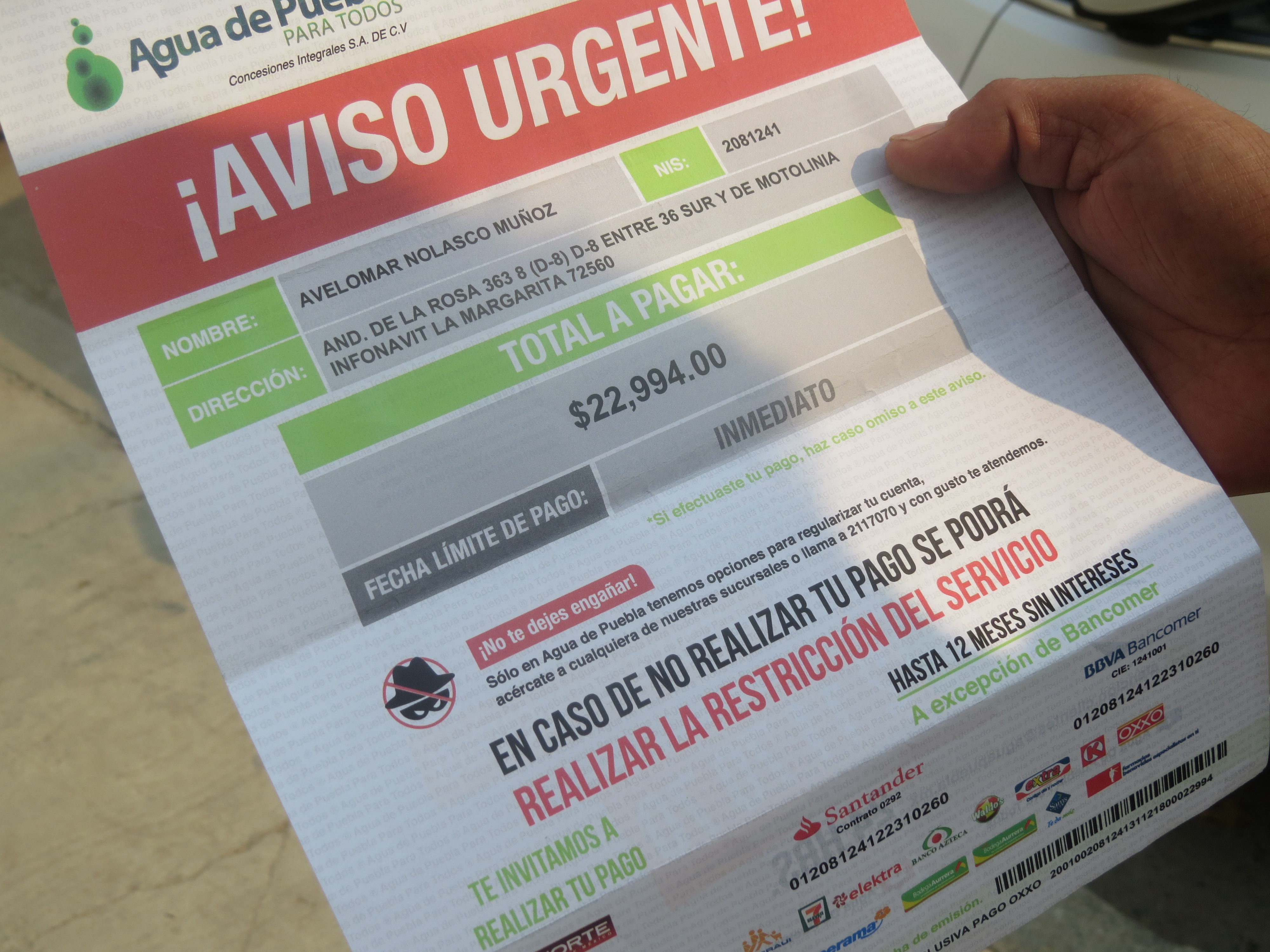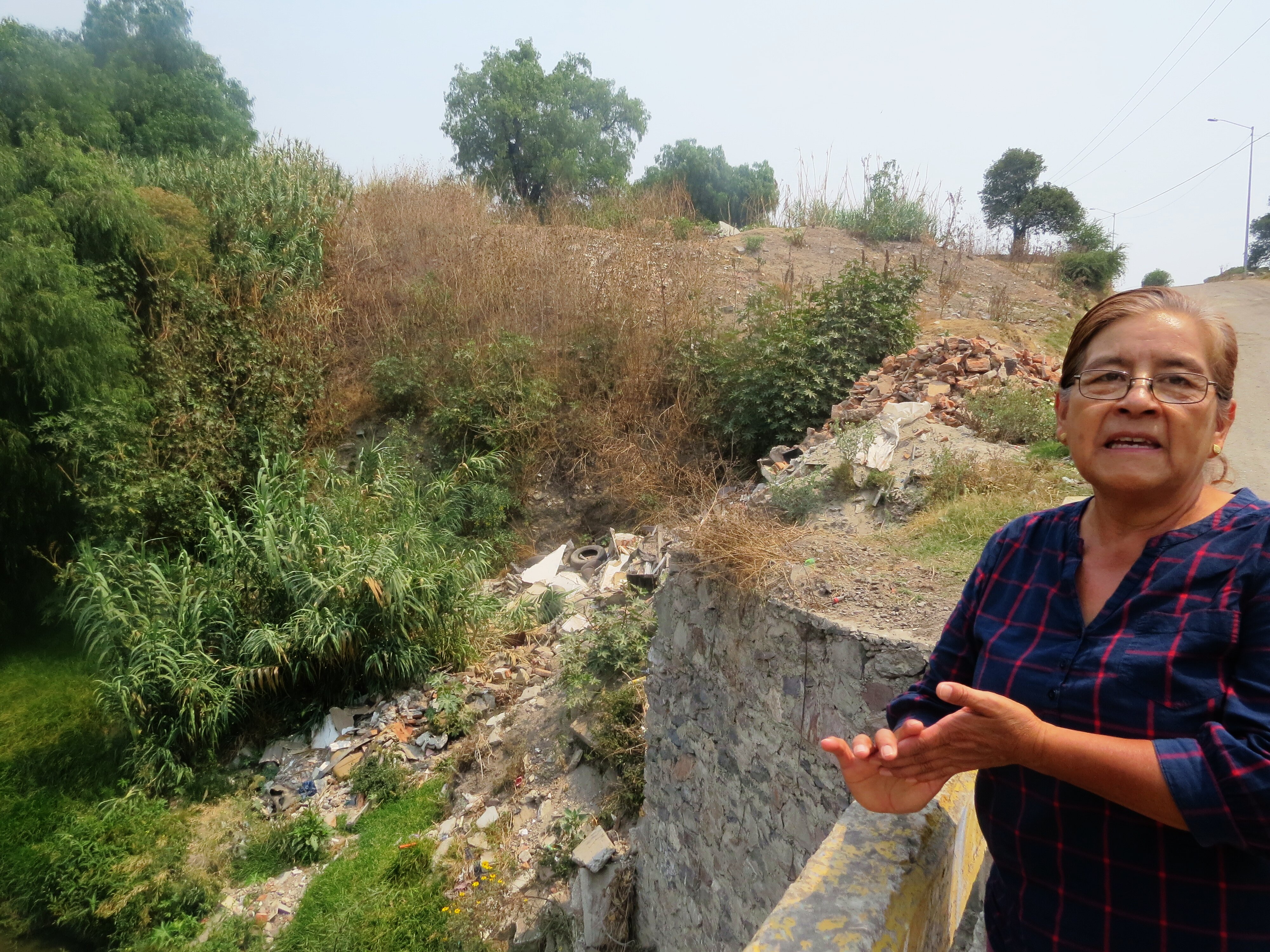Honest, paywall-free news is rare. Please support our boldly independent journalism with a donation of any size.
Water is becoming a coveted currency. As a basic need that is increasingly scarce in some regions due to climate disruption and abusive industrial and agricultural practices, it is the new gold that the wealthy want to get their hands on. Companies like Nestlé and even drug gangs in Mexico are harnessing the profit and power potential of water, with trails of violence and corruption left in their wake.
In Puebla, two hours to the south of Mexico City, a private water company has plans to break up the streets of the historic city center, a world heritage site. The pipes here were changed 16 years ago and only need to be changed once every 90 years, but the company will risk damaging underground electricity, internet and sewage networks, as well as the colonial paved streets, to do unnecessary repairs. With an inflated budget of 270 million pesos (US$14 million), the company hopes to avoid the cancellation of its contract to manage the city’s water by meeting its terms to conduct a certain volume of repairs.
Meanwhile, drains flood and large quantities of water leak from damaged pipes. Puebla’s water was privatized in 2013, and is now controlled by a consortium run by corrupt businessmen who allegedly launder money for some of Mexico’s biggest drug cartels.
The company, Agua de Puebla, hasn’t conducted any studies to demonstrate the repairs are necessary, attorney Omar Jiménez told Truthout. Jiménez is a water rights activist who has won in court against Agua de Puebla for illegally disconnecting people’s water in nearly 400 cases.

Ambrosio Guzmán, the director of the National Institute of Anthropology and History in Puebla, said that Agua de Puebla hadn’t consulted his institute, using the excuse that buildings aren’t involved. However, the whole center of Puebla is a heritage site, including its streets.
“These people don’t know anything about Puebla. They don’t respect historic heritage, and they don’t respect the law,” Guzmán said. “This will also impact traffic; it will provoke chaos.”
The money that pays for these sorts of works comes from Puebla residents, who pay the water bills and the taxes that go to the loans, argues Francisco Castillo Montemayor, a former director of Puebla’s water regulatory body.
The Violent Water Market
There are 10 apartments in the building I live in, and we all share the water that arrives in the building’s cistern, which is then pumped to our individual water tanks. Agua de Puebla sends very little water to the buildings in this poorer part of the center of Puebla. So, one of my neighbors installed his own water pump so he could fill his water tank separately, leaving the rest of us with no water for a week.
In many regions of the world, water is becoming a scarce commodity that is bought, sold and fought over. “Whoever controls the water controls everything. It is more important than petroleum,” Argelia Arriaga Garcia, a historian and water activist, told me as we drove to visit various communities harmed by Agua de Puebla measures.
By 2030, the global demand for water will be 40 percent higher than today, and water supplies will diminish, according to the Water Resources Group. Some 2.1 billion people already lack immediate access to clean drinking water, and most countries are experiencing some kind of water stress — from water scarcity to drought concerns or contaminated piped water.
But business people who live for wealth accumulation only see market opportunity. Once they control the resource that life depends upon, they have leverage with the multinationals who use a lot of water in their manufacturing processes and with politicians who are bribed by those multinationals.
Attorney Jiménez, water rights activist Arriaga Garcia and myself visited a dense working-class area of Puebla called Margarita and talked to residents there about the abuses committed by Agua de Puebla. There, resident Avel Nolasco talked about how the company asked everyone in his suburb for water receipts, and if people didn’t have them or weren’t home, they cut off their water. An older man, he now has to carry water given to him by neighbors in buckets up to the eighth floor. Jiménez estimates the company cuts off the water supply and drainage system of 100,000 homes per year.
Locals also described how the water company had charged them 250 pesos to fix their pipes and refused to give them receipts. They argued it was another scam, as legally, the company is the one responsible for fixing and maintaining infrastructure.
In another incident of corruption, “A group, I don’t know who, came and took all the water meters and then charged for the old ones they took and then for new ones, and an installation fee … but these things should be at the company’s expense. It is robbery,” Nolasco said.
He was also served with a 23,000-peso debt — equivalent to around seven months of minimum wages. “Why should we pay so much money if we don’t even get water? When we do get water, it is around 50 percent of the minimum human consumption,” he said, referring to the World Health Organization minimum of 100 liters per person per day. “They aren’t concerned about water supply, they just charge interest on interest, because they are really just banks.”

Further, the head of the regulatory water body, Gustavo Gaytan, is also the head of the private company that sells the water meters to residents. Jiménez alleged that if people don’t buy water meters, Agua de Puebla raises their fees, “and the cheapest water meters are never available.”
In Margarita in April this year, a 32-year-old motorcyclist died when he fell into a hole in the middle of the road made by Agua de Puebla workers. They hadn’t put out any cones to draw attention to the hole. Several locals alleged that Agua threatened the family that if they sued, they would kill them.
Gouging the Poor
The mistreatment of the poor while prioritizing big businesses is deliberate and systematic. While Agua de Puebla cuts off home water supplies, it is also diverting domestic water to a new Heineken factory, for example.
But the corruption here goes beyond simply the bribing of police officers — though that is rampant in Puebla, with motorists regularly pulled over and forced to pay large bribes in order to avoid excessive and unjustified fines. Corruption is the abuse of power for private gain, and a complex violence is being committed quietly and vigorously against people and land in Mexico and beyond.
This tolerated robbery of the general population goes beyond the water, to Mexico’s beaches, education, health care and more.
By law, Mexico’s beaches are publicly owned. Hotel and tourism companies, many of them multinationals or foreign-owned, take advantage of institutional inaction to make beaches private by buying land nearby and blocking off public access. Private security guards remove so-called intruders. The permissibility is so widespread that they announce their private beaches in their publicity.
Further, according to Mexican tax authorities, there are more than 6,500 shell companies in Mexico, which between 2012 and 2017, billed over $700 billion. Cases of health or education ministries diverting their funds to such companies and leaving hospitals and universities struggling, are too common.
We observe the consequences of permissibility for business when we visit San Francisco Totimehuacan, a suburb on the edge of Puebla city, where fruit trees and vegetables used to flourish, cattle grazed, and people took their drinking water from the river that passes through.
It is like desert now — the ground is dry and sandy, most of the trees are gone, and the river is lined with rubbish and smelling of sewage. The smell attracts mosquitoes, and residents say they are forced to use insecticide in their homes to control the large numbers. The sewage water that goes into the river should be going through a treatment plant, but Agua de Puebla, we observe, keeps it out of operation.
One of the residents described how he used to fish for frogs, axolotl and silverside in the river and eat them. But now, he says, the fish “taste like petroleum.”
People in Totimehuacan had built their own drainage and wells, then Agua de Puebla “took our wells and now makes money from them, while we go without water,” Totimehuacan resident Blanca Justo Cortez told Truthout.

“We have water once a week, sometimes not at all for weeks. We have to buy it from pipas. The pipas also come here and sell us our own water, and it isn’t drinkable,” she said, referring to trucks of water that get their supplies from wells in Totimehuacan. “I see it as discrimination against poor people, the fact that we don’t get water.”
Justo Cortez points at the Atepetzingo River. “The national water authorities should fine people who dump rubbish there, but they don’t.”

At the time of writing, Jiménez posts to Twitter and Facebook, Agua de Puebla has cut off his water and drainage in response to him standing up to them. “It’s an act of repression against me for defending the human right to water and for being against the privatization of this vital liquid,” he writes.
Trump is silencing political dissent. We appeal for your support.
Progressive nonprofits are the latest target caught in Trump’s crosshairs. With the aim of eliminating political opposition, Trump and his sycophants are working to curb government funding, constrain private foundations, and even cut tax-exempt status from organizations he dislikes.
We’re concerned, because Truthout is not immune to such bad-faith attacks.
We can only resist Trump’s attacks by cultivating a strong base of support. The right-wing mediasphere is funded comfortably by billionaire owners and venture capitalist philanthropists. At Truthout, we have you.
Truthout has launched a fundraiser, and we have only 24 hours left to raise $17,000. Please take a meaningful action in the fight against authoritarianism: make a one-time or monthly donation to Truthout. If you have the means, please dig deep.
